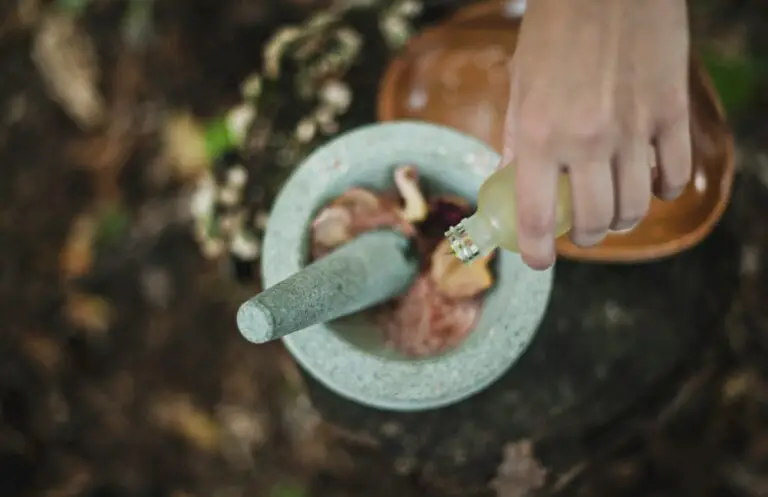The Art of Successful Relationships: Navigating Love and Dating with Confidence

I. Understanding the Foundation of Successful Relationships
A. Communication: The cornerstone of connection
Good communication is like the cement that holds relationships together. It’s not just about talking but really listening and understanding each other. I’ve found that setting aside dedicated time for open, honest conversations can work wonders. Whether it’s sharing your day over dinner or having a weekly check-in, making space for dialogue strengthens your bond.
B. Trust: Building and maintaining a strong bond
Trust is the bedrock of any healthy relationship. It’s built slowly, through consistent actions and kept promises. I remember when my partner and I first started dating, we made a pact to always be honest, even when it was difficult. This commitment has helped us weather many storms and grow closer over time.
C. Mutual respect: Valuing each other’s individuality
Respecting your partner means appreciating their unique qualities, even the ones that differ from your own. It’s about celebrating their achievements, supporting their decisions, and valuing their opinions. In my experience, couples who maintain a high level of respect for each other tend to have more satisfying and long-lasting relationships.
II. Developing Emotional Intelligence in Relationships
A. Self-awareness: Understanding your own emotions
Being in touch with your own feelings is crucial for a healthy relationship. It helps you communicate better and avoid projecting your issues onto your partner. I’ve found that keeping a journal or practicing mindfulness can really boost self-awareness.
B. Empathy: Recognizing and responding to your partner’s feelings
Empathy is like a superpower in relationships. It’s about putting yourself in your partner’s shoes and truly understanding their perspective. When my partner is upset, I try to listen without judgment and validate their feelings, even if I don’t agree with everything they’re saying.
C. Conflict resolution: Addressing issues constructively
Conflicts are inevitable, but how we handle them can make or break a relationship. The key is to approach disagreements as a team, focusing on finding solutions rather than placing blame. I’ve learned that using “I” statements and staying calm during heated moments can lead to more productive conversations.
III. Nurturing Love and Intimacy
A. Physical affection: The importance of touch and closeness
Physical touch, from holding hands to hugging, releases feel-good hormones that strengthen your bond. Even small gestures like a kiss goodbye or a comforting pat on the back can make a big difference. In my relationship, we make it a point to share at least one long hug every day.
B. Quality time: Creating meaningful experiences together
Spending quality time together is essential for keeping the spark alive. This could be anything from trying a new hobby together to planning regular date nights. Some of my favorite memories with my partner are from simple activities like cooking dinner together or taking weekend hikes.
C. Emotional support: Being there for each other through ups and downs
Being emotionally supportive means celebrating your partner’s successes and comforting them during tough times. It’s about creating a safe space where both of you can be vulnerable. I’ve found that simply saying “I’m here for you” can be incredibly powerful during challenging moments.
IV. Maintaining Independence and Personal Growth
A. Pursuing individual interests and hobbies
Having your own interests outside the relationship is healthy and important. It keeps you growing as an individual and brings fresh energy to your partnership. I love photography, and my partner encourages me to take solo trips to capture new landscapes. This time apart always makes our reunions sweeter.
B. Supporting each other’s goals and aspirations
A strong relationship involves cheering each other on as you pursue your dreams. Whether it’s going back to school or starting a new business, having your partner’s support can make all the difference. My partner and I regularly check in on each other’s goals and offer help where we can.
C. Balancing togetherness and personal space
Finding the right balance between couple time and me-time is crucial. It’s okay to need some alone time or to spend an evening with friends without your partner. In fact, this balance often leads to a healthier, more dynamic relationship. We’ve found that having a mix of shared and separate activities works well for us.
V. Navigating the Dating Scene with Confidence
A. Defining your relationship goals and values
Before diving into dating, it’s important to know what you’re looking for. Are you seeking a long-term commitment or something more casual? What values are non-negotiable for you? Having clarity on these points can help you make better choices and avoid wasting time on incompatible matches.
B. Crafting an authentic online dating profile
If you’re using dating apps, honesty is the best policy. Use recent photos and be truthful about your interests and what you’re looking for. I once tried to make my profile what I thought others wanted to see, but I found much more success when I just presented my authentic self.
C. Planning engaging and memorable first dates
First dates can be nerve-wracking, but they’re also an opportunity for fun and connection. Choose an activity that allows for conversation but also gives you something to focus on if there are lulls. I’ve had great experiences with interactive dates like cooking classes or escape rooms.
VI. Building a Strong Foundation in the Early Stages of Dating
A. Taking time to get to know each other
In the excitement of a new relationship, it’s tempting to rush things. However, taking it slow allows you to build a stronger foundation. Use this time to really understand each other’s values, goals, and quirks. Some of my favorite memories are from those early “getting to know you” conversations.
B. Setting healthy boundaries and expectations
Clear boundaries and expectations help avoid misunderstandings down the line. This could involve discussing how often you’ll communicate, how you’ll handle finances if things progress, or what level of social media sharing you’re comfortable with. It might feel awkward at first, but these conversations can prevent a lot of future conflicts.
C. Discussing important topics and potential deal-breakers
While it’s not first date material, it’s important to discuss big topics like children, religion, and long-term goals relatively early on. I once dated someone for months before realizing we had completely different views on having kids. Having these conversations sooner rather than later can save both of you time and heartache.
VII. Overcoming Common Relationship Challenges
A. Dealing with jealousy and insecurity
Feelings of jealousy or insecurity can pop up in any relationship. The key is to address these feelings openly and work together to build trust. When I felt insecure about my partner’s close friendship with a coworker, talking it out helped me realize my fears were unfounded and actually brought us closer.
B. Managing differences in communication styles
We all have different ways of expressing ourselves. Some people need to talk things out immediately, while others need time to process. Recognizing and respecting these differences can prevent a lot of misunderstandings. My partner and I have different styles, but we’ve learned to meet in the middle.
C. Navigating external pressures from family and friends
Outside influences can sometimes put strain on a relationship. Whether it’s family disapproval or friends who demand too much time, it’s important to present a united front. My partner and I make decisions together about how to handle these pressures, which has strengthened our bond.
Summary
Building and maintaining a successful relationship takes effort, but it’s incredibly rewarding. By focusing on communication, trust, and mutual respect, you lay a strong foundation. Developing emotional intelligence, nurturing intimacy, and maintaining individual growth all contribute to a healthy partnership. Whether you’re navigating the dating scene or working on a long-term relationship, remember that it’s a journey of continuous learning and growth. With patience, understanding, and a willingness to work through challenges together, you can create a loving, lasting relationship.
FAQs
1. How soon should I introduce my new partner to my family?
There’s no one-size-fits-all answer, but generally, wait until you feel secure in the relationship and see potential for long-term commitment. This could be anywhere from a few months to a year, depending on your situation.
2. What are some signs that a relationship is becoming unhealthy?
Watch out for constant criticism, lack of respect, attempts to control your behavior, or feeling like you’re walking on eggshells. Trust your gut – if something feels off, it probably is.
3. How can I maintain a strong relationship while pursuing a demanding career?
Communication is key. Be clear about your work commitments, but also make sure to carve out quality time for your relationship. Even small gestures like a quick call during your lunch break can help maintain connection.
4. Is it normal to have doubts in a long\-term relationship?
Absolutely. It’s normal to have moments of doubt or to wonder “what if.” The important thing is how you handle these feelings. Use them as an opportunity for self-reflection and open communication with your partner.
5. How can we keep the spark alive after years of being together?
Keep dating each other, try new things together, and make an effort to show appreciation regularly. Also, maintain some mystery by continuing to grow as individuals. Sometimes, seeing your partner in a new light – perhaps pursuing a new hobby or skill – can reignite that spark.









